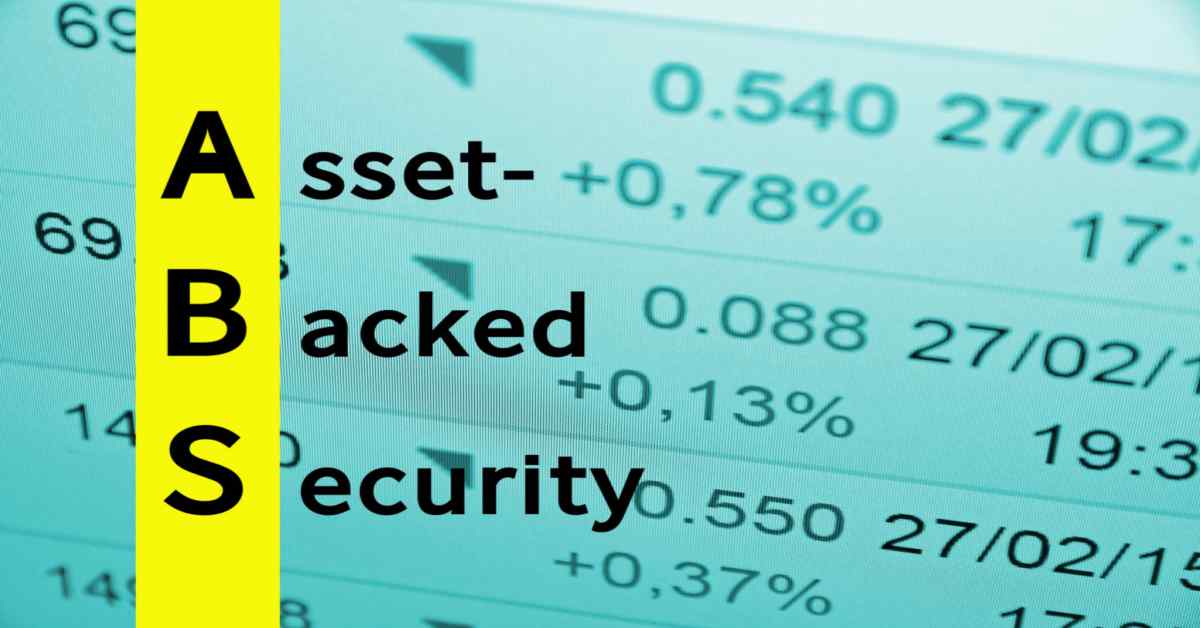Table of Contents
Quality Service Guarantee Or Painting Free

Get a rental agreement with doorstep delivery

Find the BEST deals and get unbelievable DISCOUNTS directly from builders!

5-Star rated painters, premium paints and services at the BEST PRICES!
Loved what you read? Share it with others!

A Brief Look at Assets-Backed Securities in India
Table of Contents
Asset-backed securities, or ABS, are financial instruments supported by a collection of essential assets. A modest collection of loans or other debt commitments that cannot be issued to individual investors make up the pool of assets most often. These assets can be offered to investors by being bundled together into a single financial instrument. Investors are less exposed to risk because the underlying assets are diversified. Continue reading to find out more about ABS and to determine if they are a good investment for your financial assets.
What is the meaning of Asset-Backed Securities?

A financial investment known as asset-backed security (ABS) is one that is secured by a pool of underlying assets, typically those that produce a cash flow from debt such loans, rentals, balances on credit cards or receivables. It takes the shape of a bond or note and provides income at a fixed rate till maturity over a predetermined period. However, there are no mortgages backing this combination of assets. Instead, these securities are backed by a variety of assets, such as credit card receivables, vehicle loans, school loans, home equity loans, and student loans. Typically, financial institutions or lenders are unable to sell such pools by themselves. ABS provides investors with the chance to invest in a diverse asset mix that generates income while giving lenders more opportunities to receive a cash flow. ABS may be used by some investors as a substitute for corporate debt.
Understanding Assets Backed Securities: How do they Work?

Asset-backed securities give their issuers the ability to raise money for lending or other types of investments. An ABS's underlying assets are frequently illiquid and cannot be sold separately. Securitization, the process of combining assets to create a financial instrument, enables the issuer to market illiquid assets to investors. Additionally, it enables them to remove riskier assets from their books, lowering their credit risk.
Quality Service Guarantee Or Painting Free

Get a rental agreement with doorstep delivery

Find the BEST deals and get unbelievable DISCOUNTS directly from builders!

5-Star rated painters, premium paints and services at the BEST PRICES!
for illustration, let's pretend Company ABC provides home equity loans to clients. A lender will provide cash to a borrower who requests a home equity loan in return for payback terms and conditions that include interest payments. If the present loans were packaged together, Company ABC could be able to lend to additional borrowers if they are making a significant amount of money on home equity loans.
As a result, they might opt to package the home equity loans, sell them to an investment company, and then deploy the money they make to lend to even more homeowners. The investment firm will combine these securities into various groups, also referred to as tranches when the transaction is complete. A group of assets or loans with comparable attributes, such as terms, interest rates, or default rates, make up each tranche. These securities are subsequently bought by individual investors, who then gain the cash flows from the actual pool of auto loans minus an administrative charge that Investment Firm X retains for itself.
These pools' underlying assets could consist of auto loans, student loans, credit card receivables, home equity loans, or other anticipated cash flows. ABS issuers are free to use any inventiveness they like. Asset-backed securities, for instance, have been created using cash flows from the sale of movies, royalties, aeroplane landing rights, toll roads, and solar energy. Almost any event or vehicle that generates revenue can be collateralized into an ABS.
Purchasing an ABS offers the potential for a revenue stream for investors. The ABS enables individuals to take part in a wide range of income-generating assets, even occasionally—as was already mentioned—exotic ones that aren't accessible through any other kind of investing.
Meaning and Organisation of Securitization in India

When assets are pooled and packaged as interest-bearing securities, the process is known as securitization. Examples of such assets include mortgage-backed securities (MBS), auto loans, microloans, and credit card debt. In the transaction, assets are transferred from the originator's balance sheet to the balance sheet of an intermediary, which could be either an asset reconstruction company (ARC) managing stressed assets/bad loans or a Special Purpose Vehicle, SPV (a legal presence typically set up as a trust to carry out a specific business purpose or activity) for performing assets/non-stressed assets.
The pooled assets are offered to investors in the Indian market either in the form of security receipts (SRs) for stressed assets or pass-through certificates (PTCs), that is similar to bonds and represent regular assets. PTCs or SRs are representations of rights to future cash flows (such as principal and interest payments) from such funds. The primary benefit of this approach for the originator is that it creates liquidity on its balance sheet and/or rebalances its loan position by getting money from investors far in advance of the expiration of the underlying loans. On the other hand, PTC investors receive the proceeds from the principal amount held by the SPV.
In India, banks and other financial institutions are also permitted to engage in Direct Assignment (DA) operations in order to sell their loan books to other banks or financial organisations for a set interest rate. Such deals don't entail the creation of an SPV or the distribution of PTCs. In actuality, DA structures are favoured most by Indian banks and other financial institutions when securitizing their assets.
Comparison of Mortgage-Backed Securities and Asset-Backed Securities (MBS)

Two of the most significant asset classes in the fixed-income market are asset-backed securities (ABS) and mortgage-backed securities (MBS). ABS is generated from the pooling of non-mortgage assets, whereas MBS are generated from the pool of mortgages that are sold to prospective buyers. These securities are typically supported by credit card receivables, home equity loans, student loans, and auto loans. The 1980s saw the development of the ABS market, which has grown in significance for the U.S. lending market.
Despite their apparent resemblance, there are important variations between the two categories of assets.
Three parties make up the structure of these kinds of securities: the seller, the issuer, and the investor. Companies that create loans for sale to issuers are known as sellers. They also serve as the servicer, obtaining principal and loan interest from borrowers. Sellers profit from ABS and MBS since they can be taken off the balance sheet, enabling sellers to get more money.
Issuers, which can be a third-party firm or special-purpose vehicle, acquire loans from sellers and combine them to distribute ABS or MBS to investors (SPV). Investors in ABS and MBS are generally institutional investors looking to diversify their portfolios and earn greater rates than those offered by government bonds.
Investing in Asset-Backed Securities: How are Asset-Backed Securities Priced?

ABS is typically divided into three tranches: Class A, Class B, and Class C by investment firms. The greatest pool of loans and a rating that investors may like are typically found in Tranche A. Because Tranche B provides a lower credit grade than Tranche A, it has a greater yield. In essence, the investor is increasing their risk, which could result in a higher return.
Tranche C, which frequently cannot be offered to investors and is therefore required to take on the liabilities from the other tranches, has the lowest credit rating of all. Selecting the best ABS for your portfolio will be made easier for you if you are aware of what each tranche offers.
If you determine that an ABS is something you want to trade in, you may buy one at practically any brokerage house. Working with a financial advisor can help you choose the ABS that will best meet your investment and cash flow requirements.
Invest in Top-rated ABS with NoBroker Legal Experts
The Indian government has been working hard over the last few years to expand the securitization market by offering a strong regulatory framework. This specifically occurred in the wake of NBFC crises like IL&FS and DHFL, which increased the urgency of finding other sources of funding for Indian corporations. Increased involvement of foreign portfolio investors (FPIs) in securitization deals is another goal of the Indian regulator. The securitisation procedure, especially the process for asset-backed securities cab ve quite confusing at times for common people. But the results are highly rewarding if the calculations are done properly. Want to start your investment journey with ABS? Get all the legal information from NoBroker legal experts. Our top-rated professionals will guarantee that you start your investment journey without any hassle. Comment down your requirement under the blog and our executive team will be in touch with you shortly.

FAQ’s
A financial investment known as asset-backed security (ABS) is secured by a pool of underlying assets, typically those that produce a cash flow from debt such as loans, rentals, balances on credit cards or receivables.
The revenues of the underlying assets serve as the basis for the value of securitized goods. Securitizations can be made from a variety of debts, including residential and commercial mortgages, credit card arrears, vehicle loans, student loans, and other debts.
In India, the market for mortgage-backed securities has fully dried up on the supply side. There have only been a few issuances of mortgage-backed securities over the years. The market, according to the originators, is not sufficiently hungry for long-term paper.
If you determine that an ABS is something you would like to invest in, you may buy one at practically any brokerage house. Working with a financial advisor can help you choose the ABS that will best meet your strategy and cash flow requirements.
Two of the most significant asset classes in the fixed-income market are asset-backed securities (ABS) and mortgage-backed securities (MBS).
Recommended Reading

How to Get a Stay Order in India: Step-by-Step Legal Process in 2025
May 31, 2025
94196+ views

FSI in Mumbai 2025: Calculate FSI in Mumbai Municipal Corporation
January 31, 2025
92167+ views

How to Convert Agricultural Land to Residential Land: Process, Eligibility and Documentation
October 10, 2025
74978+ views

Maharashtra Stamp Act: Meaning, Duty Rates, Benefits and Registration Rules in 2025
January 31, 2025
72209+ views

FSI in Chennai: A Comprehensive Guide to Regulations and Calculations
January 31, 2025
65578+ views
Loved what you read? Share it with others!
Most Viewed Articles

Franking Charges Explained: Meaning and Benefits
January 31, 2025
1116001+ views

Society Maintenance Charges : Meaning, Cost, Types and Calculation
January 31, 2025
195757+ views

BBMP E-Khata Registration process for property owners in Bangalore, Karnataka in 2025
March 19, 2025
145603+ views

Daughter's Right in Fathers' Property - the Law is Finally Equal for both Genders?
June 1, 2025
137724+ views

Rectification Deed Format and Process in India 2025
June 1, 2025
131050+ views
Recent blogs in
What Is Property Lease: Meaning, Types, Key Components and How it Works in India 2026
January 26, 2026 by Vivek Mishra
Rental Settlement Agreement: Meaning, Format, Use and Legal Validity in India 2026
January 26, 2026 by Kruthi
Rent Agreement Laws in India: Registration, Legal Acts and Regulations in 2026
January 26, 2026 by Ananth
How To Calculate Stamp Duty on Lease Deed: Meaning, Calculation and Penalty in India
January 26, 2026 by Ananth
Deed of Surrender of Tenancy: Meaning Process and Legal Validity in India 2026
January 24, 2026 by Ananth








 Full RM + FRM support
Full RM + FRM support
Join the conversation!